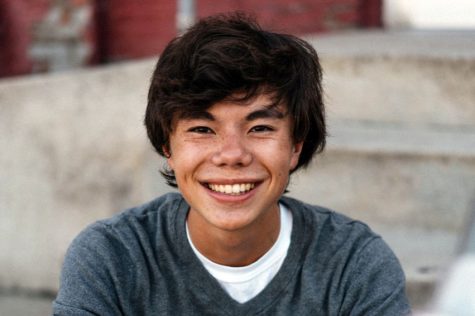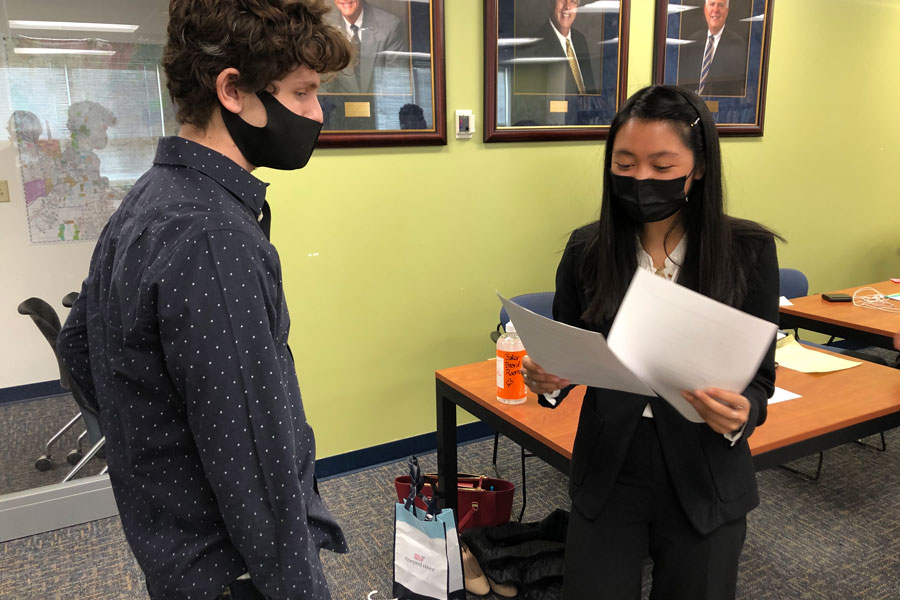Mock Trial team wraps up State competition
Fictional arson case provides the basis for the event
The Baker Board Room in Kelly Hall became a courtroom on Feb. 20 when the mock trial team took part in its first competition of the school year.
Mock trail team member and senior Connor Gianoli said, “Essentially, we were given case materials, we presented evidence and created a plausible story as the prosecution. We competed against different high schools via Zoom.”
Dealing with an arson charge, senior Yinny Lim said over email that she and her co-counsel, senior Claire Miller and sophomore Liam Eifert, “had to research a (fictional) court case and prepare a line of questioning for a witness (played by Aidan Betts) that would show that he was not guilty.”
To start, Lim said that the team was given a packet of witness statements for each fictional character in the case. Lim said, “To prepare my lines of questioning (known more formally as direct or cross examination questions) I first began by analyzing the strengths and weaknesses of those statements with which I was presented.”
Working to preserve her client’s innocence, Lim analyzed certain details to test the means, motive and opportunity for a crime. Lim said, “A weakness in my case was that the defendant had the (opportunity) to possibly set someone’s car and house on fire. In my line of questioning, I tried to cast doubt on the fact that this piece of information directly links the defendant to the crime of arson by highlighting how there were many other people who could have also set the house on fire, as everyone in a high school was at the house-in-question for a party earlier in the day.”
As a fellow member of the defense, Miller said, “I was representing the guy who allegedly committed the crime.” Providing the opening statement for the defense, Miller delivered a three-minute overview of the case. Additionally, she conducted a direct examination of a defense witness and a cross examination of a witness for the prosecution.
Miller said, “In a direct examination you walk through your witnesses story and their connection to the case, while trying to prove or establish a few things that help your case.” This form of analysis is differentiated from cross examination, where “you only ask a few zinger questions in order to get the opposing witness for the other side to admit something that helps your case, or to prove something,” she said.
Eifert explained over email that the the questioning must be derived from a story fabricated beforehand that leads to a desired answer. In addition to questioning, attorneys must learn objections and rules of evidence. “This way you can disrupt the other team and tell the story you want to tell,” said Eifert.
Eifert added that the last major piece of preparation — aside from practice — was for some team members to “pretty much memorize a speech (with notes)” while also wielding the extemporaneous speaking skills to revise their statement during the trial based on new developments.

Andrew de las Alas is a senior and reporter for the Megaphone. He runs varsity cross-country, is co-captain of the speech and debate team and co-president...







